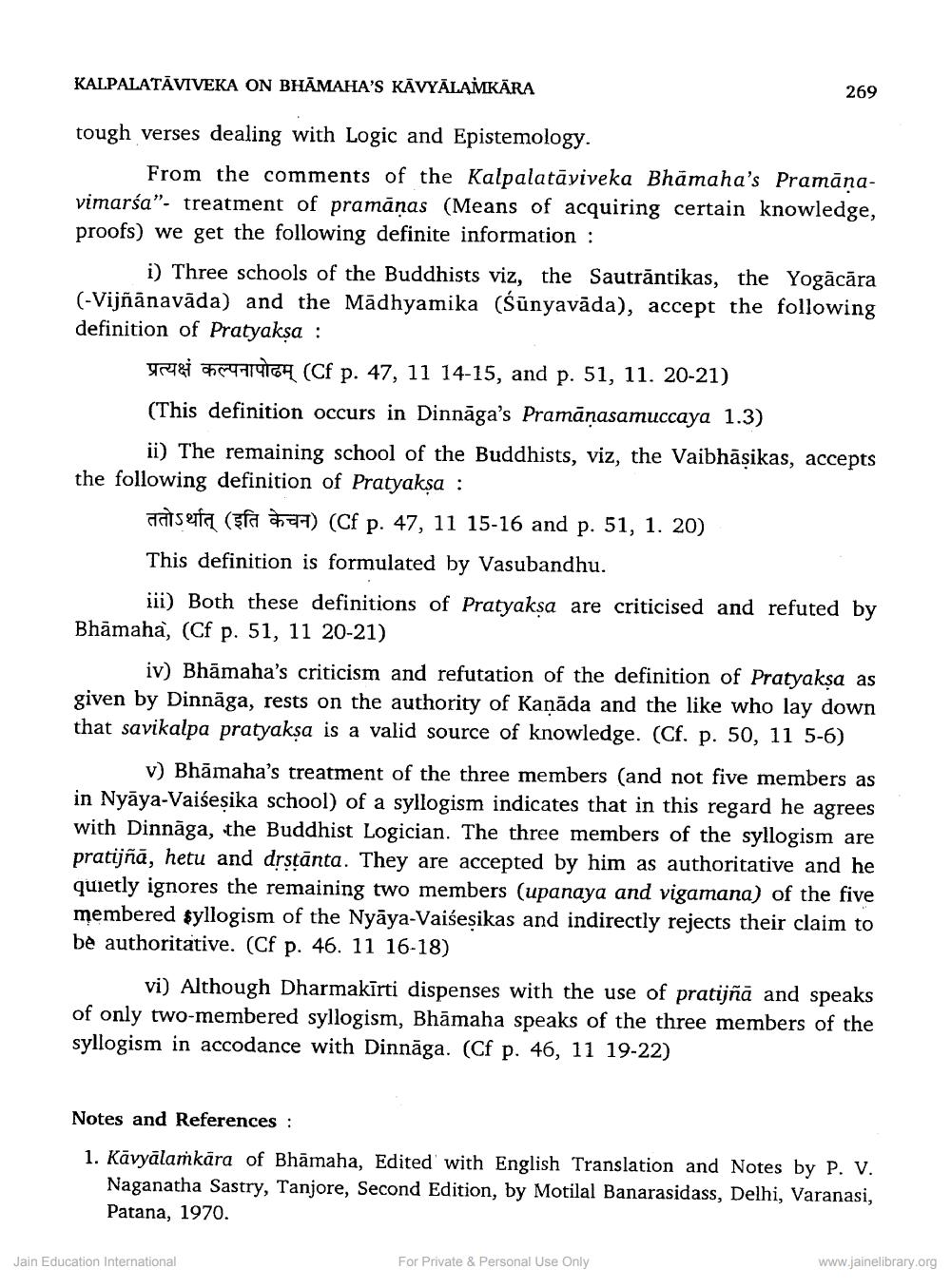________________ KALPALATAVIVEKA ON BHAMAHA'S KAVYALAMKARA 269 tough verses dealing with Logic and Epistemology. From the comments of the Kalpalataviveka Bhamaha's Pramanavimarsa". treatment of pramanas (Means of acquiring certain knowledge, proofs) we get the following definite information : i) Three schools of the Buddhists viz, the Sautrantikas, the Yogacara (-Vijnanavada) and the Madhyamika (Sunyavada), accept the following definition of Pratyaksa : taai to M4A1416H (Cf p. 47, 11 14-15, and p. 51, 11. 20-21) (This definition occurs in Dinnaga's Pramanasamuccaya 1.3) ii) The remaining school of the Buddhists, viz, the Vaibhasikas, accepts the following definition of Pratyaksa : adsefa (Ffa 29A) (Cf p. 47, 11 15-16 and p. 51, 1. 20) This definition is formulated by Vasubandhu. iii) Both these definitions of Pratyaksa are criticised and refuted by Bhamaha, (Cf p. 51, 11 20-21) iv) Bhamaha's criticism and refutation of the definition of Pratyaksa as given by Dinnaga, rests on the authority of Kanada and the like who lay down that savikalpa pratyaksa is a valid source of knowledge. (Cf. p. 50, 11 5-6) v) Bhamaha's treatment of the three members (and not five members as in Nyaya-Vaisesika school) of a syllogism indicates that in this regard he agrees with Dinnaga, the Buddhist Logician. The three members of the syllogism are pratijna, hetu and drstanta. They are accepted by him as authoritative and he quietly ignores the remaining two members (upanaya and vigamana) of the five membered syllogism of the Nyaya-Vaisesikas and indirectly rejects their claim to be authoritative. (Cf p. 46. 11 16-18) vi) Although Dharmakirti dispenses with the use of pratijna and speaks of only two-membered syllogism, Bhamaha speaks of the three members of the syllogism in accodance with Dinnaga. (Cf p. 46, 11 19-22) Notes and References : 1. Kavyalamkara of Bhamaha, Edited' with English Translation and Notes by P. V. Naganatha Sastry, Tanjore, Second Edition, by Motilal Banarasidass, Delhi, Varanasi, Patana, 1970. For Private & Personal Use Only www.jainelibrary.org Jain Education International




